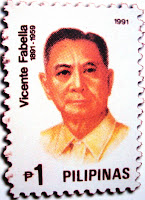Johannes R.Becher- East Germany Anthem Lyricist

After World War II and the division of Germany, the eastern part of the nation became a Communist republic and adopted its own anthem to distinguish them from their western neighbour. This text is not as communist-oriented as several other communist anthems are, and also references a united Germany, perhaps because the anthem first started to be in use in the "Russian sector" of Germany before it was divided into East and West. Starting in 1971, the lyrics, written by Johannes R. Becher, while still official, were rarely sung at official occassions, perhaps because the Communist leaders noticed that this anthem does not really fit to their idea of an East German state. The music was composed by Hanns Eisler.
After the popular revolution in 1989 (the high point of which was the tearing down of the Berlin Wall), the lyrics came into favour again, and the "Deutchland einig Vaterland" notion was once again the slogan of East Germany. The words were once again used poularly until the union of the two Germanys, and the last East German parliament even attempted to make "Auferstanden aus Ruinen" (Risen from Ruins) the anthem of the united Germany, but this was refused by West Germany. Therefore, the anthem was official until East and West Germany united again in 1990 into a unified Germany. (In an interesting note, it was discovered after the fall of the Berlin Wall, when a new anthem for a unified Germany was being sought, that the words to "Auferstanden aus Ruinen" fit the melody of the "Deutchlandlied".
The author and politician Johannes R. Becher was born on 22nd May 1891 And attended school in Munich, Göttingen and Ingolstadt. In 1910 he tried unsuccessfully to commi

t suicide. From 1911-1918, he studied Philology, Philosophy and Medicine in Munich, Jena and Berlin. After this period he became a member of the Communist Party of Germany (KPD). In 1932 he was a candidate for parliament for the Communists. After the seizure of power of the Hitler-gang he left Germany first to Prague then Paris, later Moscow. In 1934 he lost his German nationality. After the war he came back to Germany. In 1949 he wrote the text for the East German national anthem. In 1950 he was one of the founders of the Academy of Arts and Member of the East German parliament. In 1953-56 he was president of the Academy of Arts (he followed Arnold Zweig), a nd from 1954-58 he was Minister for Culture. In 1957 he lost all his political power and died in 1958.






